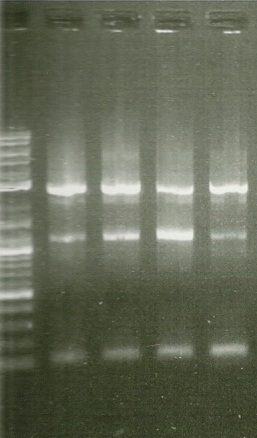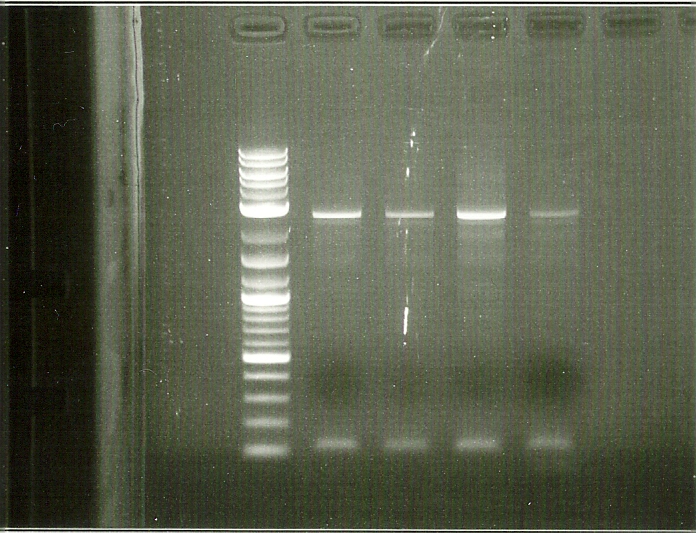|
|
| Line 30: |
Line 30: |
| | [[File:1st PCR R2.jpg|300px|thumb|left|2nd round PCR Gel]] | | [[File:1st PCR R2.jpg|300px|thumb|left|2nd round PCR Gel]] |
| | | | |
| - | [[File:YB-mCherry-1 c4.JPG|300px|thumb|left|Strain 39 YB-mCherry RFP tagged expression]] | + | [[File:39 YB-mCherry-1 c4.JPG|300px|thumb|left|Strain 39 YB-mCherry RFP tagged expression]] |
| | | | |
| | [[File:39-1 c4.JPG|300px|thumb|left|Strain 39 Control]] | | [[File:39-1 c4.JPG|300px|thumb|left|Strain 39 Control]] |
| | | | |
| - | [[File:YB-mCherry-1 c3.JPG|300px|thumb|left|Strain 39 beta carotene production]] | + | [[File:39 YB-mCherry-1 c3.JPG|300px|thumb|left|Strain 39 beta carotene production]] |
| | | | |
| | [[File:39-1 c3.JPG|300px|thumb|left|Strain 39 beta carotene production Control]] | | [[File:39-1 c3.JPG|300px|thumb|left|Strain 39 beta carotene production Control]] |
Results
The strains transformed with the caretenogenic genes are a bright orange color due to all the beta-carotene they produce, as beta-carotene is an orange pigment. We confirmed its presence via HPLC using a standard.
On a first visual comparison of growth on dough media vs YPD we did see a significantly slower growth on dough media than on YPD. This is to be expected considering there is a large excess of nutrients on the YPD plates. There was still significant growth on the dough media plates however, enough to show that it would be viable to use in bread.
In the characterization of beta-carotene versus time, we can see from the data that (insert Daphne and Omar's stuff here).

Strain 39 YB-mCherry RFP tagged expression

Strain 39 beta carotene production

Strain 39 beta carotene production Control
 "
"







